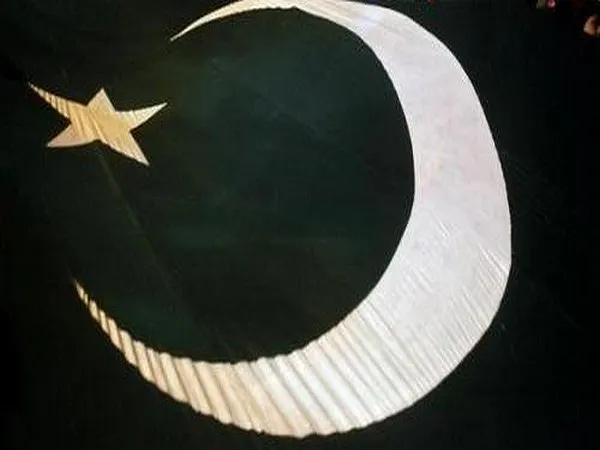Pakistan‘s controversial decision to try and sentence twenty-five civilians through military courts has sparked widespread international condemnation, highlighting the country’s deteriorating commitment to democratic principles and human rights. The December 21, 2024 verdicts, which imposed prison terms ranging from two to ten years, have drawn sharp criticism from the European Union, United States, and United Kingdom, potentially threatening Pakistan’s crucial trade relationships and international standing. The military courts’ decisions stem from events following the arrest of former Prime Minister Imran Khan in May 2023, when protests erupted across the country. The military characterized these incidents as “politically provoked violence and arson,” labeling them as “political terrorism.” However, the subsequent decision to try civilians in military courts rather than civilian judiciary has raised serious concerns about Pakistan’s adherence to international legal standards and basic principles of justice.
The European Union has taken a particularly strong stance, noting that these verdicts directly violate Pakistan’s obligations under the International Covenant on Civil and Political Rights (ICCPR). Article 14 of the ICCPR, which Pakistan has voluntarily agreed to uphold, guarantees every individual the right to a fair and public trial in an independent, impartial, and competent court. The military court proceedings, conducted behind closed doors with limited transparency and questionable due process, stand in stark contrast to these fundamental legal principles. The U.S. State Department’s assessment was equally critical, explicitly stating that these military courts “lack judicial independence, transparency, and due process guarantees.” The United Kingdom’s Foreign, Commonwealth and Development Office echoed these concerns, emphasizing how the trials undermined the basic right to fair judicial proceedings.
The economic implications for Pakistan could be severe. As a beneficiary of the EU’s Generalised Scheme of Preferences Plus (GSP+) since 2014, Pakistan has enjoyed preferential trade access to the European market, resulting in a 65% increase in exports. This arrangement, worth approximately $9.5 billion in annual exports, hangs precariously in the balance. The GSP+ status, contingent upon implementing 27 international core conventions including the ICCPR, could face suspension due to Pakistan’s apparent disregard for its international commitments. Legal experts within Pakistan have raised alarming concerns about the broader implications of these verdicts. Former Additional Attorney General Tariq Mahmood Khokhar has warned of “dire” ramifications, both domestically and internationally. The decisions not only violate international law but also contradict Pakistan’s own constitution, which guarantees the fundamental right to a fair trial under Article 10A.
Perhaps most troubling is the military courts’ apparent defiance of previous judicial oversight. Faisal Siddiqi, representing civil society members in the military courts case, pointed out that these sentences violate explicit undertakings given by Pakistan’s Attorney General to the Supreme Court, potentially constituting contempt of court. This development has been likened to the “dark days” of military dictator General Ziaul Haq’s regime, suggesting a disturbing regression in Pakistan’s democratic journey. The Europe India Chamber of Commerce (EICC) has taken the extraordinary step of calling for immediate suspension of Pakistan’s GSP+ privileges, arguing that the EU has been too lenient in enforcing compliance with international obligations. The EICC’s intervention highlights how Pakistan’s military courts are symptomatic of broader authoritarian trends, including military dominance, suppression of dissent, and restrictions on digital freedoms.
The potential economic fallout could be catastrophic for Pakistan’s already struggling economy. The loss of GSP+ status would impose tariffs ranging from 6% to 12% on Pakistani goods entering the EU market, severely impacting competitiveness. With textiles accounting for over 75% of exports to the EU and employing 40% of Pakistan’s industrial workforce, the human cost of such a suspension would be substantial. These military court verdicts represent more than just individual cases of judicial overreach; they signal a systematic erosion of democratic institutions in Pakistan. The military’s expanding role in civilian affairs, coupled with diminishing judicial independence, threatens to undermine the very foundations of democratic governance. The international community’s unified response suggests growing impatience with Pakistan’s failure to uphold basic democratic principles and human rights standards.
As Pakistan faces mounting pressure from its key international partners, the country stands at a crucial crossroads. The choice between maintaining military dominance over civilian affairs and preserving vital economic partnerships could define Pakistan’s trajectory for years to come. Without immediate reforms to ensure transparent, civilian-led judicial processes, Pakistan risks not only its international trade privileges but also its standing as a credible partner in the global community. Pakistan must remember that the world is watching, and Pakistan’s actions have consequences. The country’s leadership must decide whether maintaining military courts’ jurisdiction over civilians is worth the potential cost of international isolation and economic hardship

